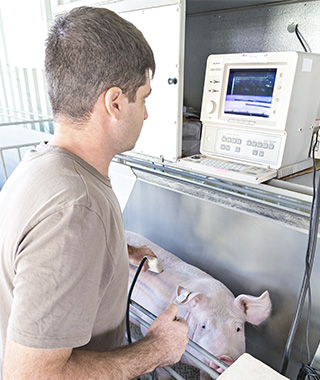The genetic level of breeding animals in Brazil is equivalent to that of the major pork-producing countries in the world, including the United States, Canada, Denmark, Spain, and Germany. The country gathers competitive advantages in the field of health because it is free from the major officially notified diseases. This condition not only highlights Brazil’s potential for exporting swine genetic material but also reveals its vocation to meet the growing demand from countries in South America and Asia.
Additionally, breeding companies have a robust genetic and traceability program that enables the assessment of the impact of genetic choices on meat quality and business profitability. This program allows for the selection of animals with characteristics desired by the consumer market. All of this is accompanied by a set of procedures that identify and track the origin, history, and characteristics of animals and products derived from pork, from the farm to the end consumer. Traceability aims to ensure the quality and safety of the product, as well as facilitate sanitary control, production management, and access to new markets.

Source: Agriness, FOUNDED IN 2001, IS RESPONSIBLE FOR MANAGING 95.2% OF THE BRAZILIAN SWINE HERD AND IS PRESENT IN OVER 30 COUNTRIES ACROSS FOUR CONTINENTS


